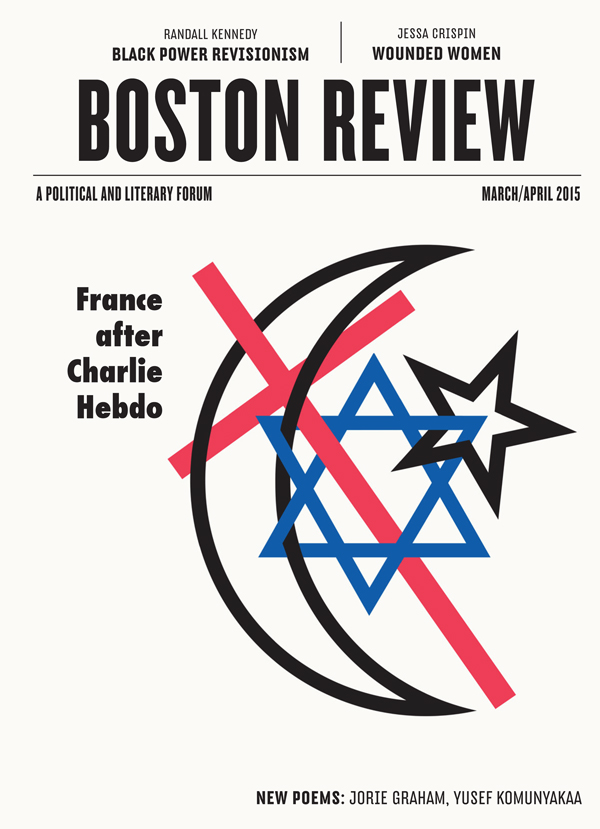Check out the full March/April issue.
 From Ferguson and Paris to Chapel Hill and Copenhagen, recent racial and religious violence has sparked fierce public debate about the nature of victimhood and social injury and the appropriate response, whether militant resistance or ameliorative repair. These important questions run throughout our issue.
From Ferguson and Paris to Chapel Hill and Copenhagen, recent racial and religious violence has sparked fierce public debate about the nature of victimhood and social injury and the appropriate response, whether militant resistance or ameliorative repair. These important questions run throughout our issue.
In the forum, John Bowen, anthropologist and author of Why the French Don’t Like Headscarves: Islam, the State, and Public Space, explores decades-long social tensions in France and considers ways in which the state marginalized Muslims and helped to breed radicalization. He proposes a way forward for a divided and unequal nation. Drawing on the best in the French republican tradition, Bowen describes how French society can accommodate Muslim religious differences while preserving a commitment to secularism. Some respondents question Bowen’s optimism, arguing that he underestimates the depth of social divisions. Another applauds Bowen’s sense of justice, but argues that he misreads the causal relationship between oppression and violence. At stake is the achievement of social inclusion in a multicultural democracy—a challenge with which all of Europe is wrestling.
Jessa Crispin takes up the pervasive social injury of women. While she acknowledges the fact of it, she questions the Internet campaign #yesallwomen and a developing women’s literature, which suggest that certain kinds of harm are the territory of women alone—that pain itself is gendered. Crispin warns that women embrace an essential vulnerability at their peril.
Elsewhere, Randall Kennedy criticizes recent revisionist histories of black power radicals—Malcolm X, Stokely Carmichael, and Huey Newton. The revisionists, Kennedy argues, elevate dubious heroes. He affirms the intellectual responsibility to get things right and the moral responsibility to separate the achievements of black power leaders from their strategic and moral failings, lest the wrong lessons be passed on to today’s activists.
Finally, in his column on how politically correct speech limits debate, Claude Fischer echoes Crispin’s warning about the danger of treating groups as fragile victims—a strategy that fosters supplication in place of determined political action.







